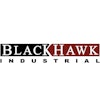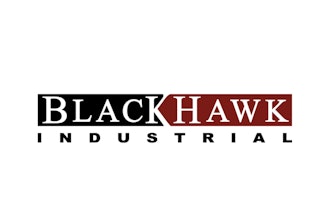Five Ways to Make the Most
of Your ERP Investment
Epicor White Paper
Five Ways to Make the Most of Your ERP Investment
1
Enterprise resource planning (ERP) systems, like all business systems, are complex and require
mindful integration into an organization and diligent upkeep—regardless of whether you’ve
had your ERP system for six months or six years. No matter how well-designed or intuitive
the system may be, it’s challenging for an organization to fully utilize ERP to its potential.
You could be getting more out of your ERP investment.
Technology is ever-evolving. For software providers, staying idle is not an option—it’s a
continuous journey of research, discovery, and advancement. At the risk of over-simplifying
a complex issue, the easiest way to make the most out of your ERP investment is by dedicating
time to understanding the improvements that have been created for the system since your
initial implementation. However, this simple task can involve a daunting amount of information.
Faced with this and innumerable other demands on your time, where do you begin? Here are
five ways that Epicor users—and all software users—can make the most of their ERP investment.
Five Ways to Make the Most of Your ERP Investment
2
1. Fully utilize the system
and its capabilities
It’s nearly impossible to find an ERP system
that fits your business perfectly out of the box.
Instead, companies select the system that most
closely suits their business needs and finds a
way to work around missing components or
limited functionality. Selecting the software
that provides the fundamental functionality
you need now and in the future, delivered by
a company that supports customers’ needs, is
more important than trying in vain to find that
perfect fit.
When companies first implement ERP
systems, they focus on the tools, capabilities,
and modules that are most critical to their
operations. Still, there are likely additional
tools and capabilities the system offers
that may have been missed. Some of these
tools might be available out of the box,
but others may require add-on expenses—
which companies may put off until the
ROI on the overall system can be proven.
The risk of waiting is that you can easily
get into a comfort zone with the system,
where adding tools and modules can be
seen more as a chore than a necessity. This
delays the integration of tools that can
help your business and make a real impact
on the bottom line. Furthermore, as your
company evolves, there may be elements of
the system that you can integrate into your
operations that hadn’t been necessary in the
past. It’s smart to periodically evaluate the
system’s capabilities to see if there’s additional
functionality you can utilize.
2. Stay on the current release
Software developers are constantly working
to improve their products, whether by
incorporating the latest technological
advancements, optimizing current programs,
or integrating with other programs/vendors. It’s
the ERP software vendor’s job to improve their
products. It’s up to the user to take advantage
of these improvements by staying on the latest
release. Research has shown that companies
using the most recent version of their ERP
software perform better than those running
outdated solutions. Newer ERP systems offer¹:
X Mobile functionality so your staff can
stay on top of key business activities from
anywhere, anytime
X Better standard features, such as
integrated analytics tools and industry-
specific functions
X Improved vendor support and easier
transitions to each new release
X More integration possibilities to connect
the systems essential to your organization
X Simpler compliance and security with
each update incorporating the necessary
regulatory requirements
Staying on the most current release not only
helps protect the security of your data, it
helps ensure that you can take advantage of
hundreds of tools that can integrate with the
system. Solutions like business intelligence,
eCommerce, tax software, and CRM tools
designed to integrate with modern ERP
systems position your business to provide
customers with what they need—and set
you apart from the competition.
Epicor customer Joe Murphy with Interstate
Connecting Components cautions against
missing releases. “It’s easy to get comfortable
with the version [of software] you’re running,
but each release has features that can improve
specific business processes,” said Murphy.
It’s also important learn what changes have
been made between releases to appropriately
prepare and train users.
“The largest benefit
of updating to the
newest version
of Prophet 21
is the ability to
differentiate
ourselves from our
competition. Staying
up to date gives us
the latest tools and
technology to stay
on the leading edge.
Keeping on the
latest version helps
us to continually
streamline our
processes and find
new ways to work
smarter and more
efficiently. We feel
confident that these
efforts are producing
greater efficiencies,
tools, and
technologies that
will benefit Stellar for
years to come.”
Adam Linger,
Technical Administrator
Stellar Industrial Supply
“Prophet 21 has a
rich set of developer
tools that give us
the ability to modify
it for our needs—
whether that’s
through tools such
as the DynaChange
Rules or AutoOrder
or simply the
flexibility it gives
us as a SQL-based
solution, we know
Epicor is a reliable
solution for us.”
—Brian Schank, CTO
Links Unlimited
1“5 Signs It’s Time to Upgrade Your ERP System,” CIO, February 9, 2018.
Five Ways to Make the Most of Your ERP Investment
3
3. Include ERP system
training during new
employee onboarding
It’s important to get new hires up to
speed quickly both with general and
role-specific ERP training. If you don’t
already have an onboarding agenda
that includes this training, check
with your system provider to see if
they have resources available for this
purpose. Not only does this create
a repeatable, predictable process,
it ensures that new hires are properly
and consistently trained.
This is especially important if you’re
operating with multiple locations and
don’t have the time, budget, or staff
available to travel for training. Epicor
customer Midland Scientific has multiple
locations nationwide and chose the
software in part because of the ease of
use. “We selected Prophet 21 because
of its ability to be user-friendly. We have
increased in staff dramatically since we
purchased Prophet 21, and we continue
to find that it’s very easy for people to
be trained on it and to understand the
system,” said Vivian Pappel, president of
Midland Scientific.
4. Encourage
ongoing training
Training shouldn’t start and end with new
employees. Existing employees can benefit
from additional training—especially after a
new release is implemented. ERP providers
should supply training resources to help users
fully utilize the system, and companies should
leverage those resources. It’s important to
keep in mind that everyone has different
learning styles, so provide training that’s
modern, interactive and engaging, and can
be delivered on any device so employees can
train when and where it’s most convenient for
their schedules.
Epicor has taken a new approach to training
by presenting scenario-based learning—things
customers see in their day-to-day activities.
According to Bill Meldrum with Etna Supply,
“Epicor University offers the best education
available for these systems in the industry.
It’s easy to make friends with the instructors,
who never rush you and take the time to
answer every question.”
5. Engage in user groups
Let’s face it—you don’t know what you don’t
know. One way to learn more about your
ERP software is to participate in user groups.
These groups are a great way to gain insight
from other users, and a good place to go with
questions you cannot answer or problems
you can’t solve. User groups may require
formal membership, but they provide an
informal platform where you can get answers
to just about any question you have about
the system.
Jorge Echave, CEO at Midwest Wholesale
Hardware and Epicor customer, goes to the
Worldwide User Group (WWUG) as a first
line of information. “Not ‘reinventing the
wheel’ as a result of information provided
by the WWUG, has helped us save time
and money in reaching a desired outcome,”
noted Echave.
In addition to user groups, check with your
ERP vendor to see if there are other areas in
which you can learn more about the system—
and influence future releases—such as user
teams, focus groups, and beta tests.
“We really get
a lot out of the
comprehensive
training resources
Epicor provides
for us, making
sure that all of our
associates leverage
the system for
their department’s
maximum benefit.”
—Andrew Wright, COO
Mercedes Medical Inc.
“Don’t ignore ongoing
employee training as
a critical factor in your
company’s profitability.
The investment we put
into educating our staff
each year on better
business processes
and new and advanced
features of Prophet
21 pays off many
times over in the form
of higher customer
satisfaction and greater
revenue per employee.
You’re shooting yourself
in the foot if you cut
ongoing training and
improvement from
your budget.”
—Renee Lytle, CFO
E.B.Horsman & Son
“Epicor listens to
our needs, wants, and
they are often able to
add what we ask into
future releases. The
company truly values
its user community.”
—Brian Schank, CTO | Links Unlimited
About Epicor
Epicor Software Corporation drives business growth. We provide flexible, industry-specific software designed to fit the precise needs of our
manufacturing, distribution, retail, and service industry customers. More than 45 years of experience with our customers’ unique business
processes and operational requirements are built into every solution—in the cloud or on premises. With this deep understanding of your
industry, Epicor solutions dramatically improve performance and profitability while easing complexity so you can focus on growth. For more
information, connect with Epicor or visit www.epicor.com.
Contact us today [email protected] www.epicor.com
The contents of this document are for informational purposes only and are subject to change without notice. Epicor Software Corporation makes no guarantee, representations, or warranties with
regard to the enclosed information and specifically disclaims, to the full extent of the law, any applicable implied warranties, such as fitness for a particular purpose, merchantability, satisfactory quality,
or reasonable skill and care. This document and its contents, including the viewpoints, dates, and functional content expressed herein are believed to be accurate as of its date of publication, February
2019. The results represented in this testimonial may be unique to the particular user as each user’s experience will vary. The usage of any Epicor software shall be pursuant to the applicable end user
license agreement, and the performance of any consulting services by Epicor personnel shall be pursuant to applicable standard services terms and conditions. Usage of the solution(s) described in
this document with other Epicor software or third-party products may require the purchase of licenses for such other products. Epicor and the Epicor logo are registered trademarks or trademarks of
Epicor Software Corporation in the United States, certain other countries and/or the EU. All other trademarks mentioned are the property of their respective owners. Copyright © 2019 Epicor Software
Corporation. All rights reserved.
Five Ways to Make the Most of Your ERP Investment
Summary
It takes time and effort to get the
most out of your ERP investment,
but most users find that the gains in
process efficiency—and the time and
money saved by using the system to
its optimum capability—are well worth
the effort. You don’t need to tackle all
of these recommendations at once.
Even following through on a few of
these tips can provide immediate results.
Rank the recommendations based upon
what’s most achievable given your budget
and available time—or rank them by
what actions will have the biggest and
most immediate impact on your business.
If it’s been a while since you’ve trained your
staff, or if you don’t have an onboarding
program, try starting with training. If you’re
several releases behind on your software,
maybe it’s time to look at upgrading.
Epicor invests significant time and resources
to provide our users with the tools they need
to succeed—including a robust on-demand
training library, a simplified upgrade path, and
product updates that incorporate ideas and
suggestions from user groups. In short,
Epicor is dedicated to helping its customers
make the most of their ERP software.
Visit www.epicor.com/distribution to learn
how Epicor solutions can help you optimize
your business to get the most from your ERP.
“Understanding how to mine data from our (Eclipse) ERP software was a huge advantage
for us. We had the pieces, but nothing was being used to its full potential. Epicor really
shines when showing how to tie together an entire system.”
—Josh Aberman, General Manager, | Lehman Pipe and Plumbing Supply
Five Ways to Make the Most of Your ERP Investment
Enterprise resource planning (ERP) systems, like all business systems, are complex and require mindful integration into an organization and diligent upkeep—regardless of whether you've had your ERP system for six months or six years. No matter how well-designed or intuitive the system may be, it's challenging for an organization to fully utilize ERP to its potential. You could be getting more out of your ERP investment.
Latest in Home
BlackHawk Adds McNutt as Northeast Region GM
September 16, 2025
Ferguson Reports Strong Results to Finish '25
September 16, 2025
Wesco Invests $10M in Procurement Software Startup
September 15, 2025






















